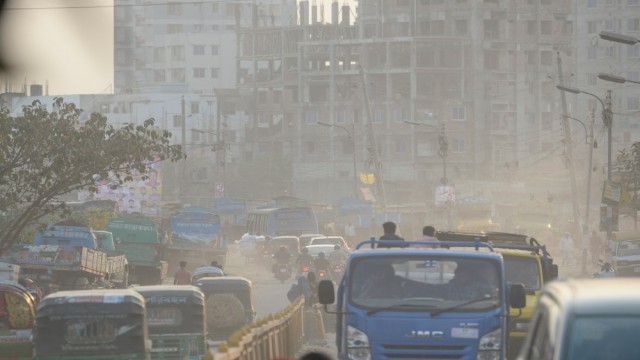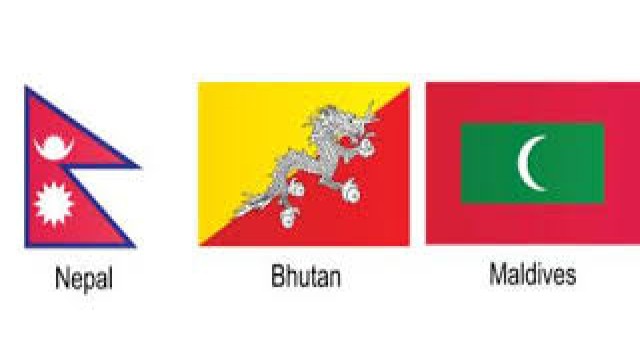Dhaka's air quality was marked as 'moderate' this morning with an Air Quality Index (AQI) score of 99 at 9:09 am, placing the city 14th on the global list of cities with the worst air quality.
India’s Delhi, Iraq’s Baghdad, and the Democratic Republic of the Congo’s Kinshasa ranked first, second, and third respectively, with AQI scores of 339, 241, and 203. These high readings indicate severe air pollution levels, particularly hazardous for residents.
An AQI score between 50 and 100 is considered 'moderate', indicating acceptable air quality that may pose some risk for a very small number of people who are unusually sensitive to air pollution. AQI scores between 101 and 150 are deemed 'unhealthy for sensitive groups', scores between 151 and 200 are 'unhealthy', scores between 201 and 300 are 'very unhealthy', and readings over 301 are considered 'hazardous', posing serious health risks to all residents.
In Bangladesh, the AQI is calculated based on five pollutants: Particulate Matter (PM10 and PM2.5), nitrogen dioxide (NO2), carbon monoxide (CO), sulfur dioxide (SO2), and ozone (O3). Dhaka has long struggled with air pollution, with its air quality typically worsening in winter and improving during the monsoon season.
According to the World Health Organization (WHO), air pollution is a major global health risk, causing an estimated seven million deaths annually. These deaths are primarily due to increased incidences of stroke, heart disease, chronic obstructive pulmonary disease, lung cancer, and acute respiratory infections.































Comment: